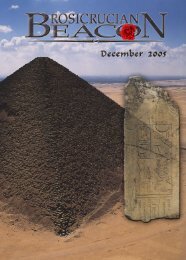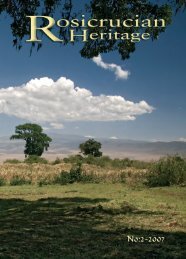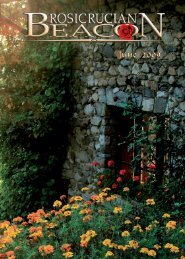Originally the city of Míletus was built on a peninsula jutting out into the sea, but the landhas reclaimed itself and the sea is now some 10 kilometres (6 miles) away.influence. Legend has it that an influx of Minoans fromCrete occurred, displacing the indigenous people. Thesettlement was renamed Míletus after a place in Crete.Following the devastation caused by the eruption of Theraand the demise of Minoan civilisation, the Late BronzeAge (c: 13 th century BCE) saw the arrival of other Indo-European Luwian language-speakers from south centralThe wealth of Míletus was the result of itssuccess as a trading centre.First of the SevenThere is a saying that the Greeks alwayshave a word for it. But for one Greek inparticular, that word is ‘amazing’. Thalesof Míletus was the first of the great Greekphilosophers, one of the Seven Sages ofAncient Greece, who was said to have beenthe originator of the phrase ‘Know thyself ’which was engraved on the front façade ofthe Temple of Apollo at Delphi. There isa question mark about Thales’ birth year,which is believed to be around 640 BCE, butall sources agree that he died in 546 BCE,aged 94 years.Míletus, where Thales was born, was themost important city of a series of city-statesthat stretched along the east shore of theAegean Sea. An area dotted with myriads ofislands large and small, notched with multitudes of inletsand bays, and with a favourable climate. His parents wereExamyus and Cleobuline. Some said he was of Phoenicianancestry. Others said that he belonged to a noble Milesianfamily. In any case, time has shown that Thales gave as muchprestige to his city as he received from it.Thales appears to have always remained unmarried.This event was important enough to be mentioned byPlutarch in his Parallel Lives, in the story of Solon ofAnatolia known as the Carians. The town was destroyedin the 12 th century BCE and starting about 1000 BCE theterritory was resettled extensively by the Ionian Greeks.Legend relates of an Ionian foundation event sponsoredby a founder named Neleus, (a Mycenaean Greek,) fromthe Peloponnese in the south of mainland Greece.Apart from Greece proper, the Greeks had spreadaround the Aegean Sea and along the coast of modernTurkey. The Greek Dark Ages that followed were a timeof Ionian settlement and consolidation in an alliancecalled the Ionian League. There then followed the ArchaicPeriod of Greek civilisation that began with a suddenand brilliant flash of art and philosophy on the coast ofAnatolia. In the 6 th century BCE, Míletus was the site oforigin of the Greek philosophical and scientific tradition,when Thales, followed by Anaximander and Anaximenes(known collectively, to modern scholars, as the MilesianSchool) began to speculate about the material constitutionof the world, and to propose speculative naturalistic, asopposed to traditional, supernatural explanations forvarious natural phenomena. Science was born.Thales of Míletus was the first of the great Greek philosophers, one of theSeven Sages of Ancient Greece, who was said to have been the originatorof the phrase, ‘Know thyself ’.10The <strong>Rosicrucian</strong> <strong>Beacon</strong> -- September <strong>2012</strong>
Míletus held a trading concession at Naucratis on the Canopic or westernmost branchof the Nile, and it is possible that Thales first visited Egypt on a trading mission whereit is reputed he gave a demonstration to the Pharaoh Ahmose II on how to measurethe height of the Great Pyramid.Athens, another of the Seven Sages of Greece. If Thales didproduce any children, none of them became prominentenough to become historically recorded. And though weremember Thales primarily as a philosopher and scientist,he was not exactly a pauper. He was an enterprisingbusinessman, becoming a dealer in olive oil and salt.It occurred to me that establishing whether ornot Thales travelled and which countries he visited isimportant to establish what information he could haveacquired from other sources. Plato made the pointthat the Greeks took from foreigners what was of valueand developed their notions into better ideas.Eudemus, who was one of Aristotle’s students,believed that Thales had travelled to Egypt. Anumber of ancient sources support that opinion,including some who stated that he spent timewith the Egyptian priests. By 620 BCE, or even earlier,Míletus held a trading concession at Naucratis on theCanopic or westernmost branch of the Nile, and itis possible that Thales first visited Egypt on a tradingmission. Travel to Egypt would not have been difficult.The wealth of Míletus was the result of its success as atrading centre, and there would have been no difficultyarranging passage on one of the many vessels which tradedwith Egypt. It is related that while in Egypt, he gave ademonstration to Pharaoh Amasis (Ahmose II) of the26 th dynasty, whose capital was at Sais near Naucratis,by merely thrusting his staff into the ground at the endof the shadow cast by a pyramid, and thus, byforming another shadow, he compared the twoshadows and measured the height of the pyramidfor the pharaoh. He is also said to have given anexplanation for the inundation of the Nile afterwitnessing the phenomenon.Josephus wrote that Thales was a discipleof the Egyptians and the Chaldeans whichsuggests that he also visited what is now Iraq. It isthought that Thales visited the Babylonians andChaldeans and had access to their astrologicalrecords which enabled him to predict the solareclipse of 585 BCE.Míletus had founded many colonies,perhaps as many as 90, around the Mediterraneanand especially along the coasts of the BlackSea. The Milesians traded their goods for rawmaterials, especially iron, timber and fish.Strabo mentions a sheep-industry and the yieldof soft wool, and Aristophanes mentioned thefine and luxurious Milesian wool. The Milesiantraders also had access to the hinterland. Theland around the mouth of the river Maeanderwas fertile, and planted with olive trees. Thaleshimself was associated with a commercial venture in theproduction of olive oil in Míletus and on the island ofChios, but his interests may have extended beyond thosetwo places. Olive oil was a basic item in the Mediterraneandiet, and was probably a trading commodity of someimportance to Milesian commerce.It seems likely that Thales was one of the ‘greatteachers’ who, according to Herodotus, visited Croesus,the king of Lydia, in his capital Sardis. From Sardis, hecould have joined a caravan to make the three-monthjourney along the well-used road, to visit the observatoriesThales realised that certain definite principlesapplied to geometric shapes.in Babylonia, and seek out the astronomical knowledgewhich the Babylonians had accumulated over centuriesof observation. Alternatively, as Milesian merchantmencontinually plied the Black Sea, gaining a passage on shipcould have been easily arranged. From any number ofports Thales could have sought information, and from theport of Sinope he may have ventured on the long journeyto Babylonia, perhaps travelling along the valley of theTigris, as Xenophon did in 401-399 BCE.In a letter said to be from Thales to the mysticPherecydes of Syros, regarded as the teacher of Pythagoras,Thales stated that he and Solon had both visited CreteThe <strong>Rosicrucian</strong> <strong>Beacon</strong> -- September <strong>2012</strong>11











